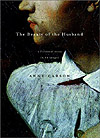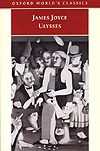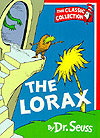
The Beauty of the Husband
By Anne Carson
Carson is an extraordinary poet. She's eloquent and brutal and funny—not at all sentimental. In this book, which is arranged in 29 chapters (what Carson calls tangos), she captures domestic scenes of jealousy and fear and passion. She takes you through the unfolding of one couple's relationship—essentially, it's a story of a crumbling marriage, and I devoured it. The husband is chronically unfaithful. At one point, the wife speaks of how she had "seeing scars on her eyes from trying to look hard enough at every stone of every sidewalk in the city…or office block or telephone booth to wring from it a glimpse of the husband with someone else.…" I thought that was beautiful—"seeing scars" on her eyes.
By Anne Carson
Carson is an extraordinary poet. She's eloquent and brutal and funny—not at all sentimental. In this book, which is arranged in 29 chapters (what Carson calls tangos), she captures domestic scenes of jealousy and fear and passion. She takes you through the unfolding of one couple's relationship—essentially, it's a story of a crumbling marriage, and I devoured it. The husband is chronically unfaithful. At one point, the wife speaks of how she had "seeing scars on her eyes from trying to look hard enough at every stone of every sidewalk in the city…or office block or telephone booth to wring from it a glimpse of the husband with someone else.…" I thought that was beautiful—"seeing scars" on her eyes.

Thérèse Raquin
By Èmile Zola
This is not particularly highbrow; it's a little soap opera-ish. Thérèse has a dreary life with her husband and his mother in 19th-century Paris. She starts an affair with her husband's coworker, and together they conspire to kill her husband. Toward the end of the story, the pair have exactly what they wanted—except now they can't bear to be alone together. They feel as if her husband's corpse is with them all the time. It's just devastating, that discovery. I've always found Thérèse Raquin compelling—how these two are ultimately suffocated by their own guilt and conscience.
By Èmile Zola
This is not particularly highbrow; it's a little soap opera-ish. Thérèse has a dreary life with her husband and his mother in 19th-century Paris. She starts an affair with her husband's coworker, and together they conspire to kill her husband. Toward the end of the story, the pair have exactly what they wanted—except now they can't bear to be alone together. They feel as if her husband's corpse is with them all the time. It's just devastating, that discovery. I've always found Thérèse Raquin compelling—how these two are ultimately suffocated by their own guilt and conscience.

Ulysses
By James Joyce
I would say I understand maybe three of the zillions of allusions in this book. Still, I find it such a remarkable thing. Ulysses is an epic that loosely follows The Odyssey, but it's populated by modern people with all their foibles and misdemeanors. It's so intricate—and as I said, so much of it is over my head—but I love the way Joyce talks about the "ineluctable modality of the visible." You shut your eyes, open them again, and find the world continues without your witnessing it. It's a beautiful reflection on change and time and one's place in the scheme of things.
By James Joyce
I would say I understand maybe three of the zillions of allusions in this book. Still, I find it such a remarkable thing. Ulysses is an epic that loosely follows The Odyssey, but it's populated by modern people with all their foibles and misdemeanors. It's so intricate—and as I said, so much of it is over my head—but I love the way Joyce talks about the "ineluctable modality of the visible." You shut your eyes, open them again, and find the world continues without your witnessing it. It's a beautiful reflection on change and time and one's place in the scheme of things.

Mrs. Dalloway
By Viginia Woolf
I am a huge fan of Virginia Woolf. I love the way she puts words together, and especially the way this book is structured. Two characters, Clarissa Dalloway and Septimus Warren Smith, are struggling with the aftereffects of World War I and, in a way, both searching for meaning in their lives. Early on, Clarissa thinks, "What a lark! What a plunge!" She uses all these exclamations and has this girlish way about her. For his part, Smith is running around rambling about universal love. He's passed into what we call madness. Though Clarissa feels vaguely unsatisfied, societal conventions, like the need to be punctual for dinner parties, still are important to her. At the end, you don't know who has found the truth. It's a fascinating musing on these shell-shocked people and the meaning of life in a war-torn society.
By Viginia Woolf
I am a huge fan of Virginia Woolf. I love the way she puts words together, and especially the way this book is structured. Two characters, Clarissa Dalloway and Septimus Warren Smith, are struggling with the aftereffects of World War I and, in a way, both searching for meaning in their lives. Early on, Clarissa thinks, "What a lark! What a plunge!" She uses all these exclamations and has this girlish way about her. For his part, Smith is running around rambling about universal love. He's passed into what we call madness. Though Clarissa feels vaguely unsatisfied, societal conventions, like the need to be punctual for dinner parties, still are important to her. At the end, you don't know who has found the truth. It's a fascinating musing on these shell-shocked people and the meaning of life in a war-torn society.

The Lorax
By Dr. Seuss
I read it to my son Kai all the time. I think it's important for kids to read, and Dr. Seuss's books are great ones to start with. The Lorax is a cautionary tale about a creature who regrets having ruined the environment after inventing the Thneed, "a Fine-Something-That-All-People-Need!" It's about production and consumerism, and to me, it has really good politics for a children's book.
By Dr. Seuss
I read it to my son Kai all the time. I think it's important for kids to read, and Dr. Seuss's books are great ones to start with. The Lorax is a cautionary tale about a creature who regrets having ruined the environment after inventing the Thneed, "a Fine-Something-That-All-People-Need!" It's about production and consumerism, and to me, it has really good politics for a children's book.

The New Rulers of the World
By John Pilger
I haven't finished this book yet, but I've been sort of agog while reading it. My husband, Paul Bettany, read it first, and he's been walking around the house ranting. It's full of shocking statistics like: The death rate of Iraqi children under five years old tripled from 1990 through 1998. I think information on globalization is hard to come by in the United States. Pilger, an Australian journalist living in England, delivers information in a straightforward way; the book doesn't seem exaggerated to me. Paul is quite politically minded. I feel embarrassingly uneducated about what is going on in the world—I'm trying to play catch-up, and I think this is a good place to start.
By John Pilger
I haven't finished this book yet, but I've been sort of agog while reading it. My husband, Paul Bettany, read it first, and he's been walking around the house ranting. It's full of shocking statistics like: The death rate of Iraqi children under five years old tripled from 1990 through 1998. I think information on globalization is hard to come by in the United States. Pilger, an Australian journalist living in England, delivers information in a straightforward way; the book doesn't seem exaggerated to me. Paul is quite politically minded. I feel embarrassingly uneducated about what is going on in the world—I'm trying to play catch-up, and I think this is a good place to start.




